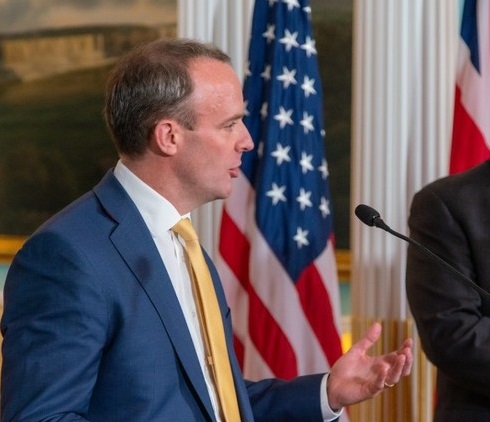The UK has imposed sanctions on Major General Min Aung Hlaing and Vice-Senior General Soe Win for “the systematic and brutal violence against the Rohingya.” In a speech, UK Secretary of State Dominic Raab counted Myanmar among several countries with public figures whose British assets would be frozen and who would be barred from entering the country. However, Raab emphasized that the measures are intended to punish specific individuals without causing economic damage to the country at large. “These sanctions are a forensic tool. They allow us to target perpetrators without punishing the wider people of a country that may be affected,” he said. Speaking to the Myanmar Times, a British embassy spokesperson emphasized that the UK remains in full support of Daw Aung San Suu Kyi and the economic and political development of Myanmar.
The effect of these sanctions will likely be more political than economic. The measures target the two generals in question, and not the Tatmadaw (Myanmar Army) in general nor any Tatmadaw-affiliated organizations. In that respect, the sanctions do not fully align with the UN Independent Fact-Finding Mission for Myanmar, which called for a blanket boycott of all military-linked business. Before Myanmar’s transition to democracy, the EU, United States, and other major economic powers had imposed strong general sanctions against Myanmar’s military regime. Although Daw Aung San Suu Kyi supported these sanctions, many critics argued that they only served to punish Myanmar’s people rather than its leadership. Although it no longer controls the government, the Tatmadaw and its business arms, such as Myanma Economic Holdings Limited, remain a cornerstone of the economy.


